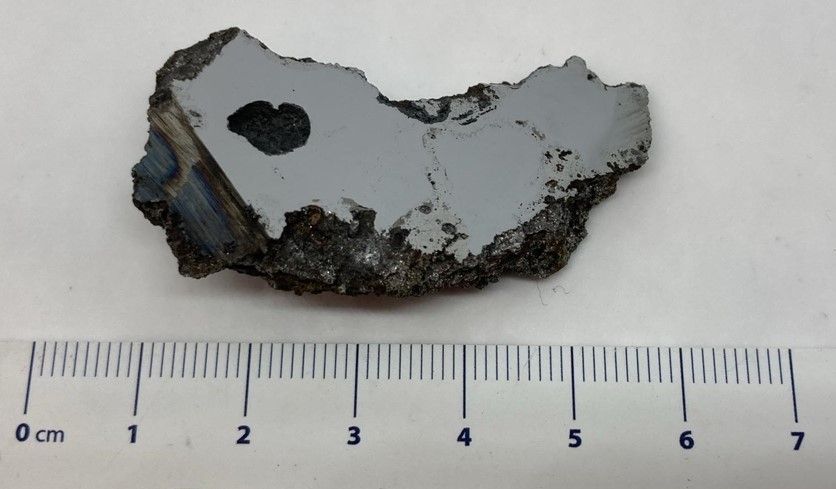2 minerals never seen before on Earth found inside 17-ton meteorite
The minerals were found inside a slice of the El Ali meteorite, which was discovered in Somalia in 2020.

Two minerals that have never been seen before on Earth have been discovered inside a massive meteorite in Somalia. They could hold important clues to how asteroids form.
The two brand new minerals were found inside a single 2.5 ounce (70 gram) slice taken from the 16.5 ton (15 metric tons) El Ali meteorite, which was found in 2020. Scientists named the minerals elaliite after the meteor and elkinstantonite after Lindy Elkins-Tanton, the managing director of the Arizona State University Interplanetary Initiative and principal investigator of NASA's upcoming Psyche mission, which will send a probe to investigate the mineral-rich Psyche asteroid for evidence of how our solar system's planets formed.
"Whenever you find a new mineral, it means that the actual geological conditions, the chemistry of the rock, was different than what's been found before," Chris Herd, a professor in the Department of Earth and Atmospheric Sciences at the University of Alberta, said in a statement. "That's what makes this exciting: In this particular meteorite you have two officially described minerals that are new to science."
Related: Meteorites that reach the Earth fall from asteroid butts
The researchers classified El Ali as an Iron IAB complex meteorite, a type made of meteoric iron flecked with tiny chunks of silicates. While investigating the meteorite slice, details of the new minerals caught the scientists' attention. By comparing the minerals with versions of them that had been previously synthesized in a lab, they were able to rapidly identify them as newly recorded in nature.
The researchers plan to investigate the meteorites further in order to understand the conditions under which their parent asteroid formed. "That's my expertise — how you tease out the geologic processes and the geologic history of the asteroid this rock was once part of," Herd said. "I never thought I'd be involved in describing brand new minerals just by virtue of working on a meteorite."
The team is also looking into material science applications of the minerals.
Breaking space news, the latest updates on rocket launches, skywatching events and more!
However, future scientific insights from the El Ali meteorite could be in peril. The meteorite has now been moved to China in search of a potential buyer, which could limit researchers' access to the space rock for investigation.
Originally published on LiveScience.

Ben Turner is a U.K. based staff writer at Live Science. He covers physics and astronomy, among other topics like weird animals and climate change. He graduated from University College London with a degree in particle physics before training as a journalist. When he's not writing, Ben enjoys reading literature, playing the guitar and embarrassing himself with chess.

